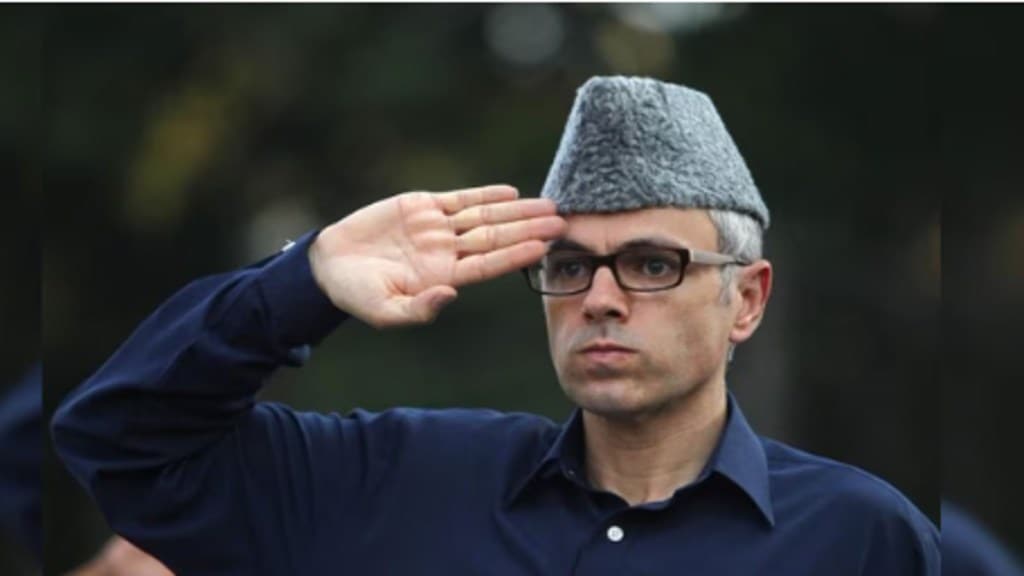Omar Abdullah, a key figure in the political landscape of Jammu and Kashmir, has consistently made headlines for his ability to weather both triumphs and defeats. A scion of the influential Abdullah family, Omar has carved out his own space in the region’s turbulent political arena. His recent victory in the Assembly polls—contesting from both Budgam and Ganderbal—marks his return to power, with many looking to him as the next chief minister of the Union Territory. As a third-generation politician and a leader of the National Conference (NC), his journey is one of both inherited responsibility and personal tenacity.
Early life and political legacy
Omar Abdullah was born on March 10, 1970, in Rochford, Essex, England, into one of the most prominent political families in Jammu and Kashmir. His grandfather, Sheikh Muhammad Abdullah, also known as the ‘Lion of Kashmir,’ was a towering figure who founded the Jammu and Kashmir National Conference (NC) in 1939. Sheikh Abdullah’s leadership shaped much of the political discourse in Kashmir. Omar’s father, Farooq Abdullah, followed in his father’s footsteps and became a dominant force in Jammu and Kashmir politics, serving multiple terms as chief minister.
Omar’s mother, Mollie Abdullah, is of British descent, which gave him a multicultural upbringing that influenced his worldview. His education at Burn Hall School in Srinagar, followed by Lawrence School in Himachal Pradesh and later Sydenham College in Mumbai, helped develop his understanding of both local and national politics. He furthered his education with a postgraduate degree in business administration from the University of Strathclyde, Scotland, preparing him for the challenges that lay ahead.
Entry into politics: A promising start
Omar Abdullah began his political career in 1998, at the age of 28, as the youngest MP elected from the prestigious Lal Chowk constituency. His early success solidified his reputation as a rising star in Indian politics, and he was re-elected in 1999, during which time he was appointed Union Minister of State for Commerce and Industry under Prime Minister Atal Bihari Vajpayee’s government. In 2001, Omar was elevated to the role of Union Minister of State for External Affairs, gaining valuable experience on the national stage.
Chief minister at 38: Facing challenges head-on
In 2008, after a period of political turmoil in Jammu and Kashmir, Omar Abdullah was elected chief minister at the age of 38—making him one of the youngest in Indian history to hold such a position. The elections, held after the controversial transfer of forest land to the Amarnath Shrine Board, saw Omar take charge at a particularly sensitive time in the state’s politics. The region was grappling with political unrest, economic challenges, and security issues.
During his tenure as chief minister from 2009 to 2015, Abdullah faced numerous hurdles. Protests, curfews, and violence periodically engulfed the valley, forcing him to navigate the precarious balance between ensuring security and maintaining political stability. Despite the challenges, his leadership was marked by efforts to improve infrastructure, promote tourism, and foster education initiatives.
Setbacks and redemption: The path to 2024
Omar Abdullah’s political journey has not been without setbacks. In 2002, he lost the Ganderbal Assembly seat—a family stronghold—to a relatively unknown politician, Qazi Mohammad Afzal. The defeat was a blow to the National Conference and was seen as a sign of the waning influence of the Abdullah family at the time. However, Omar used this defeat as a learning experience, bouncing back stronger in the 2008 elections, where he reclaimed Ganderbal and led the National Conference to become the largest party in the state.
The abrogation of Article 370 in 2019, which stripped Jammu and Kashmir of its special status and reconstituted it as a Union Territory, marked a significant turning point in the region’s politics. Omar, who opposed the move, was detained under preventive arrest. His decision to sit out the subsequent Assembly polls initially raised eyebrows, as he declared that he would not contest elections in a Union Territory setup, considering it beneath the state’s former status.
However, when the Election Commission announced the schedule for Jammu and Kashmir’s first Assembly election since the abrogation of Article 370, Omar made a crucial U-turn. Deciding to contest not one but two seats—Ganderbal and Budgam—he demonstrated his resilience and political savvy, positioning himself for a return to power.
2024 Assembly Polls: A comeback in the making
The 2024 Jammu and Kashmir Assembly polls were seen as a battle of prestige for Omar Abdullah. His decision to contest from Ganderbal, a constituency steeped in his family’s political history, was expected. However, his choice to also file his candidacy from Budgam, a seat where he faced a defeat in the 2019 Lok Sabha elections, revealed a cautious strategy. Despite the challenges, Abdullah secured an impressive victory, signaling his continued relevance in Jammu and Kashmir’s politics.
With his father, Farooq Abdullah, stepping back from active leadership, the mantle of leading the National Conference has firmly fallen on Omar’s shoulders. The NC’s pre-poll alliance with Congress resulted in a strong showing, with the party emerging as the largest in the Union Territory. Omar Abdullah’s leadership in this context is being hailed as the start of a new chapter for the region, particularly as he prepares to take on the role of chief minister once again.
Personal life and future prospects
Omar Abdullah’s personal life has also been a subject of public interest. Married to Payal Nath in 1994, the couple separated in 2011. Together, they have two sons, Zahir and Zamir, who, like their father, remain connected to the rich political heritage of the Abdullah family.

